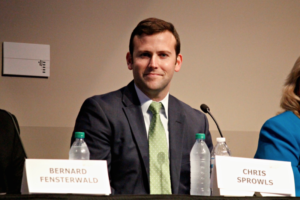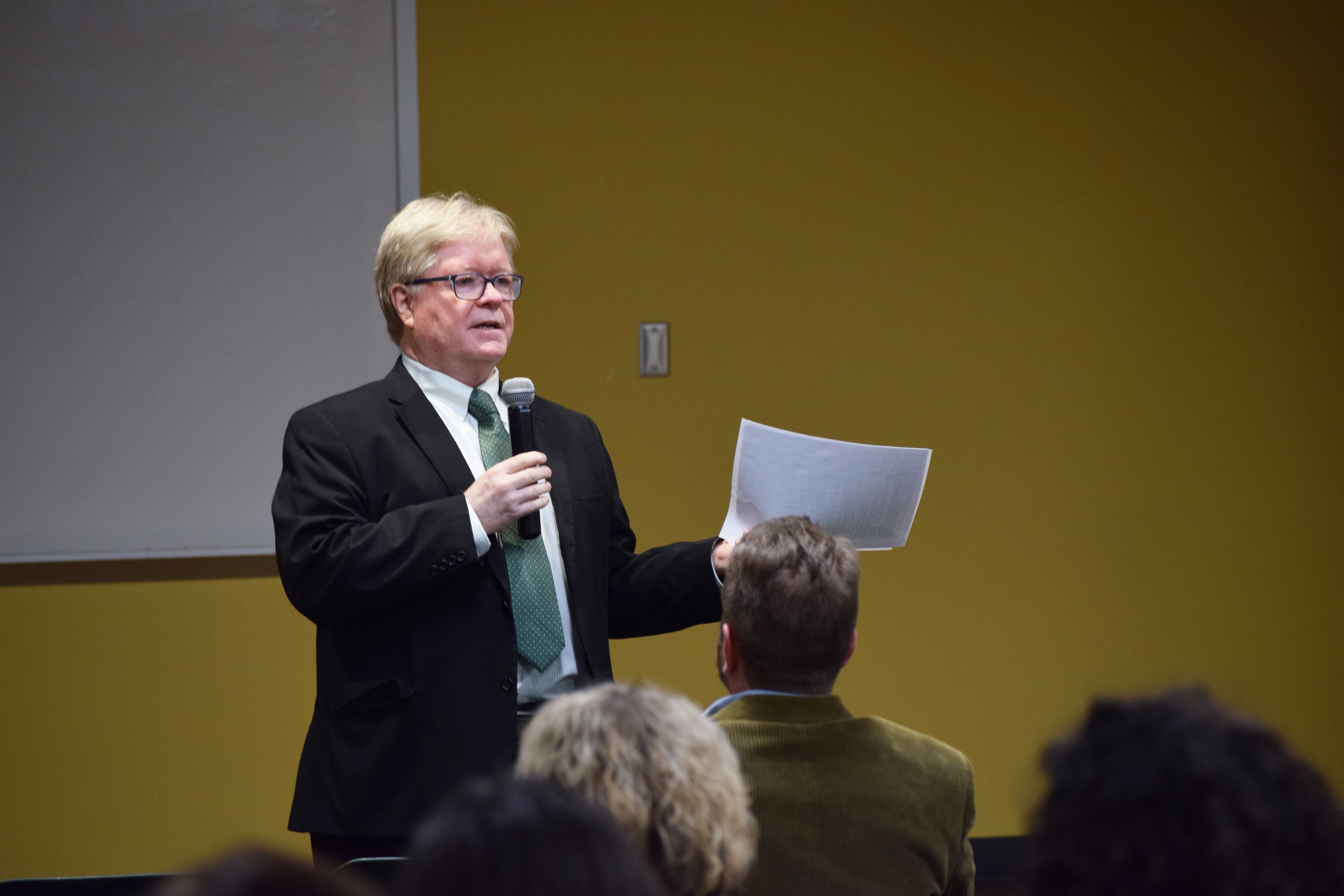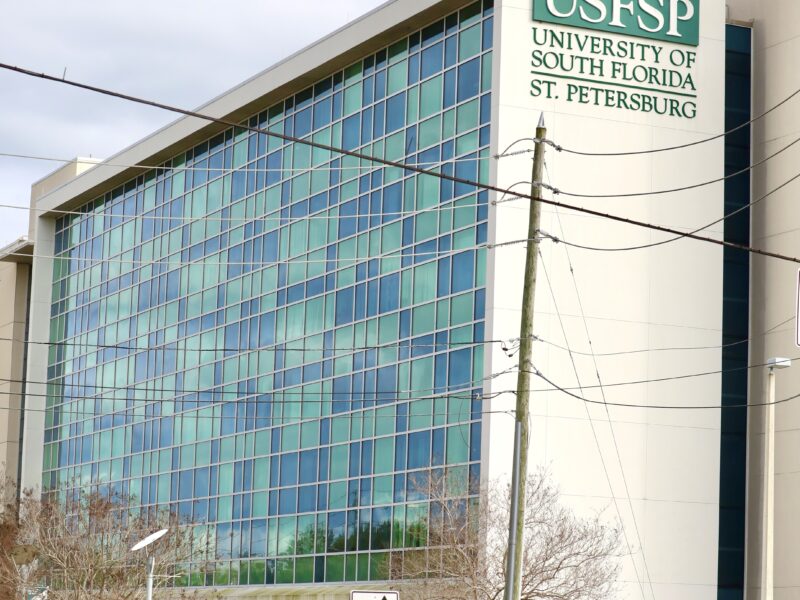By Whitney Elfstrom
At several points around campus last week, The Crow’s Nest front page bearing the banner headline “Genshafted again?” was on prominent display.
One was taped to the front door of the Student Life Center. Another was placed in the mouth of Cheryl the Bull on Harborwalk.
It was unclear who was behind it, but the message seemed clear: Some USF St. Petersburg students aren’t happy about House Bill 423, the proposed legislation that would strip the university of its separate accreditation, and they’re not going down without a fight.
One of them is Mariah McQueen, a junior marketing major from Sarasota.
“Over the past 10 years, we kind of began to gain a different representation and finally became known as more than a satellite campus from (USF) Tampa,” she said.
When she learned that USF St. Petersburg might lose its separate accreditation, McQueen said, she reacted with shock, confusion and anger. She knew that she needed to do something to let people know that HB 423 wasn’t OK.
Her response?
To create a Facebook page titled “Students and Alumni Against HB 423” and circulate a petition encouraging the community to oppose the proposed legislation.
“Employees working for this institution are restricted as to what they can say or do regarding their opinions of the bill,” she said. “That’s why I think it’s important that students are the ones to speak out because it depends on us to make a change.”
She is urging students and alumni to research the effects of the bill to ensure that they are well-versed and, above all else, to make sure USF St. Petersburg doesn’t lose its independence.
As of late Sunday, 63 people had signed the petition, some with pointed comments about the importance of a separate identity.
While concern and confusion grew among students, the university’s interim regional chancellor sought to assure them that they have no cause to worry.
“I don’t think (St. Petersburg) students will be harmed in any way” if the bill becomes law, Martin Tadlock told The Crow’s Nest in an interview Friday.

Tadlock, who said again that he is not taking a position on the bill, spent two days in the state Capitol last week meeting with the bill’s chief sponsor, state Rep. Chris Sprowls, R-Palm Harbor, and other legislators.
He predicted that the legislation is likely to pass.
“This is not an attempt to take down USF St. Petersburg,” Tadlock said. “The proposed legislation is coming from people that really believe they are doing something really good for us in the long run. (They believe) that they are going to help us become a pre-eminent university in St. Petersburg and that they’re doing the right thing for the city.”
If the bill is enacted, Tadlock said, academic opportunities for St. Petersburg should expand, meaning “we will actually have more for students.”
As it stands now, the bar that sometimes stands in the way of students taking classes at multiple USF campuses would be lifted. And programs that are now offered at one or two of the three campuses might be available at all three.
“It will be one university,” said Tadlock. “So there would be no transfer issues. You’re a student of USF. You might be here full time, you might be in Sarasota full time, you might be in Tampa full time, but you are a student of USF.”
But the question remains: If USF St. Petersburg were to lose its separate accreditation, how can the campus be sure that it won’t eventually return to the years when it was a neglected satellite campus?
St. Petersburg is no longer “the other USF campus across the bridge,” said Tadlock. It has grown to be its own fully functional, mature institution with nationally accredited colleges and programs.
“No, we’re not going to go back to what we were,” he said. “The only choice we have is to go forward – plain and simple.”
If the bill is approved, a collective board with equal representation from each campus would be assembled, Tadlock said. Students, faculty and community members would have a six- to eight-month planning period to ensure that the transition into one accredited university would be seamless.
Through that board, decisions such as the reporting line among faculty members, how students pick their home campus and how different degree programs work would be examined.
Tadlock said that, even though St. Petersburg now has separate accreditation, “I don’t see that we are autonomous – we’re joined at the hip” with USF Tampa.
In the weeks ahead, he said, “the best thing to be is open and transparent.” Legislators are “trying to do that. They’re really willing to listen, especially to students. They’re very aware of what students want.”
Header photo: Jonah Hinebaugh | The Crow’s Nest



